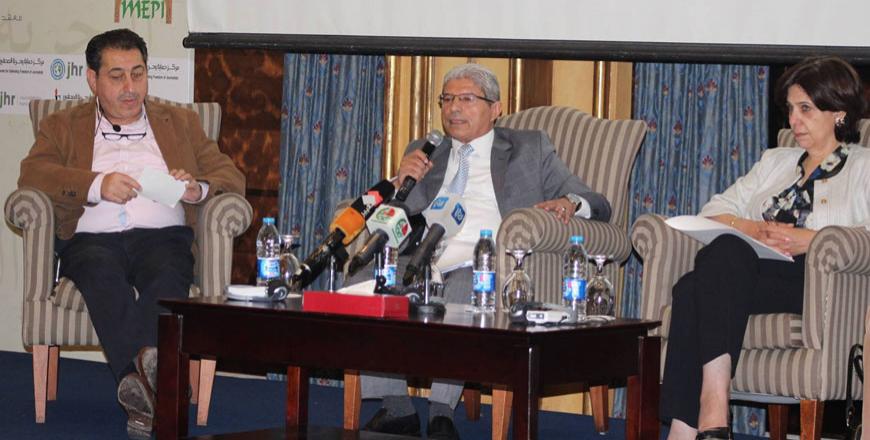You are here
Reporters Without Borders criticises gov’t for blocking news websites
By Mohammad Ghazal , Omar Obeidat - Jul 10,2014 - Last updated at Jul 10,2014
AMMAN — Reporters Without Borders on Wednesday criticised the government for blocking another nine news websites on the grounds that they failed to obtain the required licence as stipulated in the Press and Publications Law.
The government, which in mid-2013 blocked access to 263 websites, has recently blocked access to nine more sites through the Media Commission, including 7iber, a site that promotes free speech and media freedom which had changed its URL after being blocked a year ago, the watchdog said in a statement on its website.
In June 2013, the government started blocking unlicensed news websites after giving them a deadline to register.
“The Jordanian government aims to use this licensing system to ensure that it controls the Internet and the information published on it,” charged Virginie Dangles, assistant research director at Reports Without Borders.
“It must urgently repeal the Press and Publication Law provisions that are incompatible with Jordan’s international obligations,” Dangles said in the report.
But Media Commision Director Amjad Qadi said the websites were blocked by a court order because they violated the law.
“Any website can only be shut down at a court’s order for violating the Press and Publications Law,” Qadi told The Jordan Times Thursday.
For example, he explained that one of the news websites was blocked because its chief editor resigned and no substitute was appointed, adding that the law stipulates that a news website should be headed by a chief editor who is member of the Jordan Press Association.
In regards to 7iber, the official said this website describes itself as a specialised website but in reality it is a news outlet declining to be licensed in accordance with the requirements of the law.
“All they have to do is to rectify their situation to meet legal requirements to be allowed to operate freely just like many other licensed websites,” said Qadi.
Condemning the block, Nidal Mansour, president of the Centre for Defending the Freedom of Journalists, said the move is in violation of press freedom.
“It is impossible for the government to keep thinking of blocking websites. The government blocks the websites it is aware of but it cannot control and trace all websites in the digital space,” said Mansour.
He cited the UN Universal Periodic Review of the Kingdom’s human rights record in 2013, which issued 18 recommendations on improving media freedoms in Jordan. Of the total, the government accepted 15 and voiced reservations over three.
Some of the recommendations the government accepted include cancelling or amending all articles in the Penal Code that impose “blatantly unfair” restrictions on freedom of expression as well as amending the Press and Publications Law to ensure the full protection of freedom of speech.
“The government is obliged to amend the Press and Publications Law,” said Mansour.
Basel Okour, a member of the Coordination Committee of News Websites and chief editor of jo24.net, has a similar opinion.
“We are against blocking any news website because this is a violation of media freedoms and against all international standards,” he said.
“The government put harsh conditions on websites to register and obtain a licence and many corrected their situation only when the government pledged in Geneva to amend the law,” Okour told The Jordan Times.
“We urge the government to immediately amend the law and stop blocking websites.”
The law requires websites that publish local news and analyses to register and obtain licences from the Press and Publications Department, which has now become part of the newly established Media Commission.
The law also mandates a special court to look into media cases and stipulates a four-month deadline for the tribunal to rule on any case it hears.
Moreover, the legislation holds online media publishers accountable for comments their readers might post and prohibits them from publishing comments not relevant to the article to which they are attached, also requiring that all comments be archived for no less than six months.
Related Articles
AMMAN — With the government stressing that it is working to ease access to information, a watchdog said current efforts are insufficient, ca
The International Press Institute (IPI) called on the government on Tuesday to immediately suspend its block of news websites in the country and embark on reforming laws that threaten press freedoms.
The Press and Publications Department (PPD) on Monday said 156 news websites have so far rectified their situation and are registered and licensed.

Opinion
Feb 19, 2025
- Popular
- Rated
- Commented
Feb 19, 2025
Feb 18, 2025
Feb 19, 2025
Newsletter
Get top stories and blog posts emailed to you each day.















